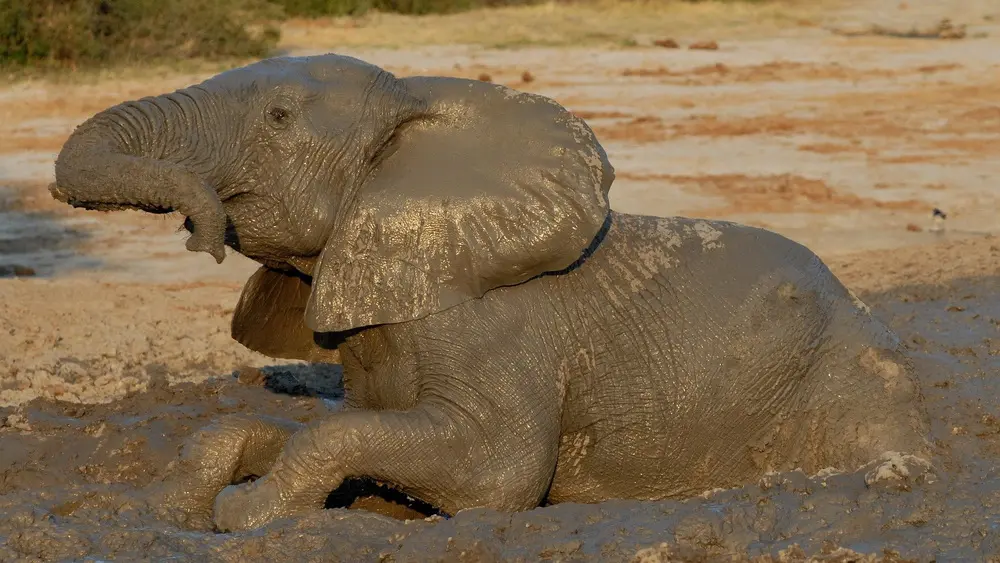
Elephants and Mud Showers
In the dense forests and grasslands of Southeast Asia, Africa, and beyond, one of the most
striking behaviors of elephants is also one of the least understood by casual observers: the mud
shower. Whether in the steamy jungles of Sumatra or the open plains of the savanna, elephants
regularly coat themselves in thick layers of mud, using their trunks with remarkable precision.
Far from being mere play, these mud baths are vital to an elephant’s health and well-being.
"Elephants love mud showers because the mud protects their skin from parasites and insects. It
also helps cool their skin from the scorching heat of the sun,” says Rudi Krisdiawadi, a
conservation specialist.
Once the mud dries and begins to crack, elephants will often rub against tree trunks or large
rocks, sloughing off both the dried mud and any unwanted pests with it.
In addition to its physical benefits, mud bathing often occurs in groups, reinforcing the social
bonds that are central to elephant life. Young elephants learn from older individuals how to find
good wallowing spots and how to use their trunks to scoop and spray. These moments are not
only about care for the body—they are also key to learning, social cohesion, and communication
within the herd.
Different environments offer different types of mud, and elephants are surprisingly discerning.
Some soils contain beneficial minerals, and elephants will seek out specific locations that offer
the right texture and composition, often returning to the same sites repeatedly over time.
Though the image of a mud-covered elephant might seem simple or even amusing, it reflects a
deep connection between the animal and its environment. Every scoop of earth flung into the air
is part of a broader natural process—one that keeps these intelligent, powerful creatures
healthy and resilient in the wild.
In the end, a mud shower is far more than a bath. It’s a form of protection, communication, and
tradition passed through generations—an ancient ritual as essential to elephants as the forests
and plains they call home.